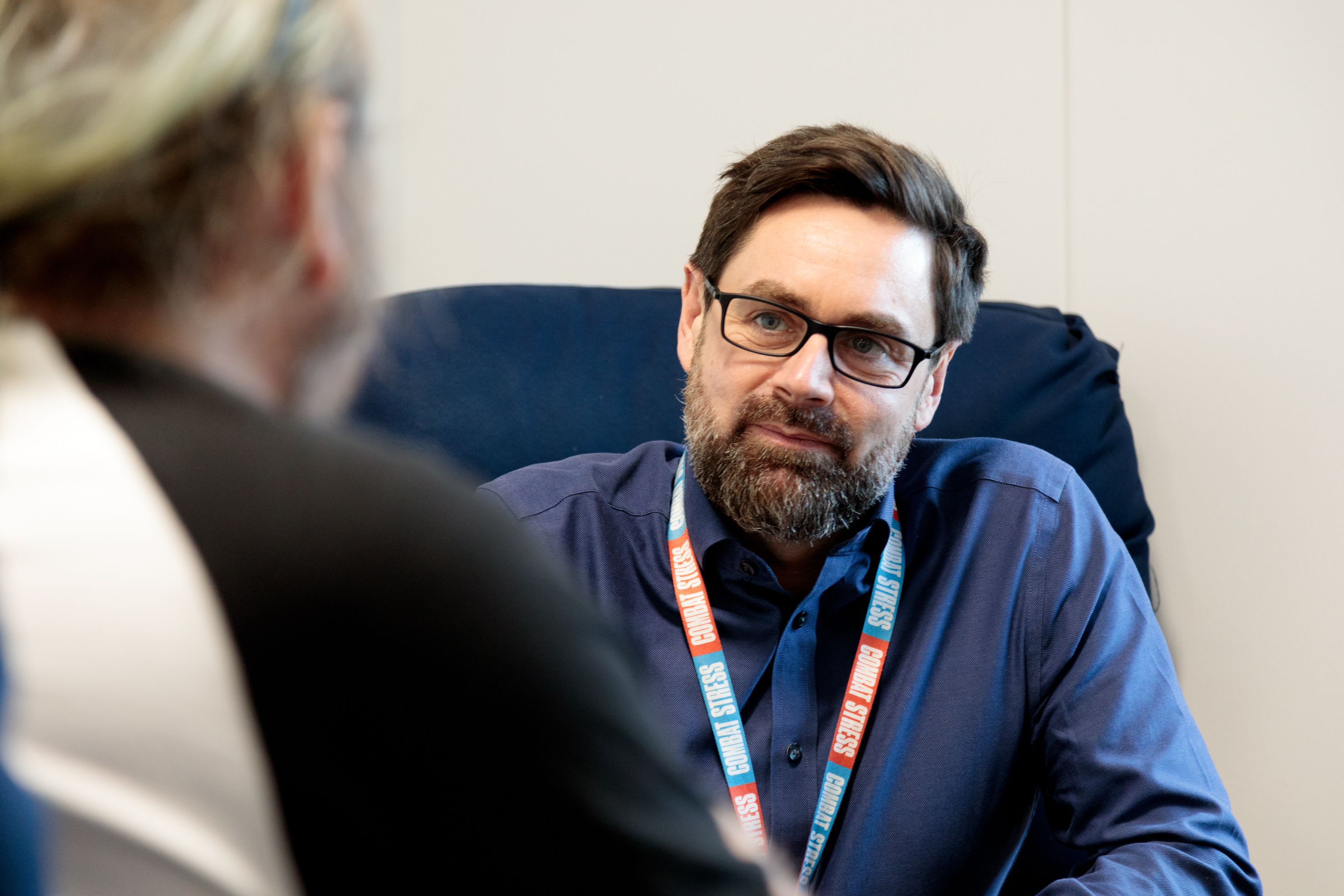Why we’re a trauma-informed organisation
Veterans are the heart of everything we do.
We know that asking for help can be difficult for former serving personnel so our staff receive training to understand military life and the mental health difficulties veterans may face after leaving the Armed Forces. Many of the veterans we support have experienced multiple traumas. Therefore, it’s important that all our staff recognise the impact traumatic experiences continue to have on everyday life. This means consistently responding to veterans in a way that prevents further harm and supports their recovery.
That’s why we’re a trauma-informed organisation. All of our staff undertake trauma-informed training to enable everyone to understand some of the ways trauma might affect the veterans who seek our help. Whether veterans are talking with kitchen staff, administrators, fundraisers, clinicians or directors we want every interaction to feel safe and for veterans to feel confident in the care we provide. We work to a set of principles which we and others believe are in contrast to the experience of trauma.
Our trauma-informed principles

Trust
We prioritise trust and transparency in our interactions. This means being clear about what we can and can’t do, explaining what our treatment entails and what will happen at the end of treatment, so that veterans understand the care we offer and trust us to deliver this.
Empowerment
Trauma can often make individuals feel disempowered. We want veterans to feel empowered to make decisions and have ownership of their treatment journey, and in turn feel empowered to make positive choices in their lives and for their future.
Collaboration
Using a collaborative approach means that we work with veterans, not for veterans – we get to know them, not a diagnosis. We directly involve veterans’ voices in decision making about our services to constantly improve what we do and develop our specialist treatment.
Safety
Trauma can leave you with a residual sense of not feeling safe. Feeling safe fosters healthy relationships and builds trust between staff and veterans, which is the foundation of recovery. We seek to integrate our knowledge of the impact of trauma into the whole organisation’s practices and policies to ensure veterans feel safe with us.
Choice
Trauma involves a lack of control so one of our main goals is to create experiences for veterans that involve shared decisionmaking and choice. We will always take into account veteran preference for treatment and also explain the clinical rationale behind different treatment options so veterans can make an informed decision about their care.
Cultural consideration
We want veterans from all backgrounds to feel confident that they can access our service and will be treated with dignity and respect at all times. This includes removing barriers and facilitating care for all, including those in minority groups, being sensitive about our language, and sharing life stories and stories of recovery of veterans from different groups.
Implementing trauma-informed practice

-
Offering a veteran the choice to work with a female or male clinician.
-
Taking collaborative approaches to treatment planning.
-
Providing options of individual treatment or group support.
-
Recognising that some veterans may be especially anxious about seeking help from a veterans’ mental health service (for example, this may include offering online treatment for those who have experienced military sexual trauma).
The veteran experience
"Initially I was reluctant to start treatment with Combat Stress, but by the time we got to the end of the first session all my fears were put to one side.”
"The team are excellent, and they care for you. From the people on the Helpline, the receptionists when you arrive, to the team who look after you – everybody cares.”
"The support was amazing and the treatment worked perfectly for me."
